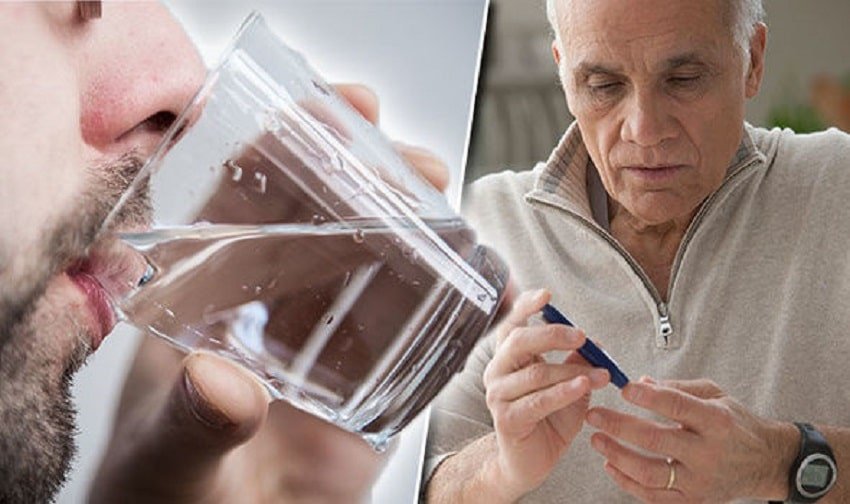The fundamentals
Getting diabetes means you need to be familiar with all you drink or eat. Knowing the amount of carbohydrates that you simply consume and how you can affect your bloodstream sugar is vital.
The American Diabetes Association (ADA) recommends zero-calorie or low-calorie drinks. The primary reason would be to prevent an increase in bloodstream sugar.
Selecting the best drinks will help you:
- avoid uncomfortable negative effects
- manage your signs and symptoms
- conserve a healthy weight
The Five best drinks
Zero- or low-calorie drinks are usually the best choice when selecting a glass or two. Squeeze some fresh lime or lemon juice to your drink for any refreshing, low-calorie kick.
Bear in mind that even low-sugar options, for example vegetable juice, ought to be ingested in moderation.
Reduced-fat dairy is really a nutritious choice. However, it will retain the naturally sourced milk sugar, lactose, which means this beverage should be considered inside your total carb allowance during the day.
Dairy choices are also not considered a minimal-sugar beverage.
Whether you’re both at home and in a restaurant, listed here are probably the most diabetes-friendly beverage options.
1. Water
With regards to hydration, water is the greatest option for those who have diabetes. That’s since it won’t lift up your bloodstream sugar levels. High bloodstream sugar levels may cause lack of fluids.
Consuming enough water might help the body eliminate excess glucose through urine. The Institute of drugs recommends men drink about 13 cups (3.08 l) of day and ladies drink about 9 cups (2.13 l).
If plain water doesn’t suit your needs, create some variety by:
adding slices of lemon, lime, or orange
adding sprigs of flavorful herbs, for example mint, tulsi, or lemon balm
crushing a few fresh or frozen raspberries to your drink
2. Tea
Studies have proven that eco-friendly tea includes a positive impact on your current health. It may also reduce your bloodstream pressure minimizing dangerous Cholestrerol levels levels.
Some investigation shows that consuming as much as 6 cups (1.42 l) a dayTrusted Source may decrease your chance of diabetes type 2. However, more scientific studies are needed.
Regardless of whether you choose eco-friendly, black, or teas, you need to avoid individuals with added sugars. For any refreshing taste, help make your own iced tea utilizing a chilled aromatic tea, for example rooibos, and give a couple of slices of lemon.
Should you not mind caffeine, Earl Gray and jasmine eco-friendly tea will also be great options.
3. Coffee
A 2012 study discovered that consuming coffee may help decrease your chance of developing diabetes type 2.
Researchers discovered that the amount of risk dropped even lower for those who drank two to three cups each day. This held true for those who drank 4 or even more cups each day.
This put on both caffeinated and caffeine free coffees, therefore if caffeine enables you to jittery, you can grab a mug of decaffeinated.
Just like tea, it’s essential that your coffee remain unsweetened. Adding milk, cream, or sugar for your coffee boosts the overall calorie count and could affect your bloodstream sugar levels.
Many no- or low-calorie sweeteners can be found if you opt to rely on them.
4. Vegetable juice
Some 100% juice is 100% sugar, you can test tomato juice or perhaps a vegetable juice alternative.
Help make your own mixture of eco-friendly leafy vegetables, celery, or cucumbers with a number of berries for any flavorful way to obtain minerals and vitamins. Make sure to count the berries in your carb total during the day.
5. Low-fat milk
Milk products ought to be incorporated in what you eat every day.
They contain important minerals and vitamins, however they do add carbohydrates for your diet. Always choose unsweetened, low-fat, or skim versions of the preferred milk.
You need to limit you to ultimately 2 to 3 eight-ounce glasses each day. You may also try dairy-free, low-sugar options, for example prepared nut or coconut milk.
Remember that soy and grain milk contain carbohydrates, check the packaging.
Also, many dairy milk alternatives lack vitamin D and calcium unless of course they’re prepared. Many nut milk varieties contain minimal protein.
The Three worst drinks

